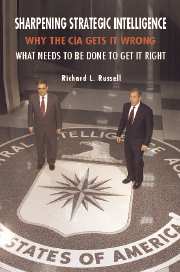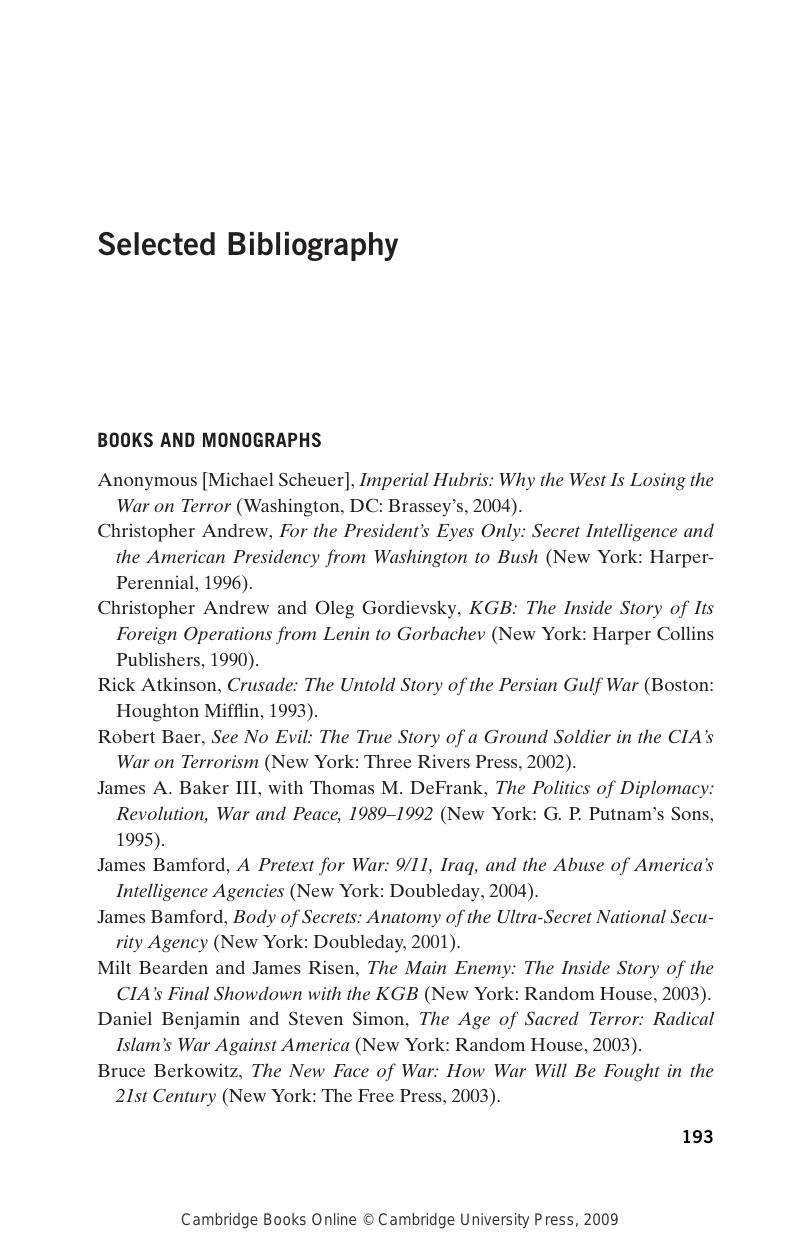 Sharpening Strategic Intelligence
Sharpening Strategic Intelligence Book contents
- Frontmatter
- Contents
- Acknowledgments
- Sharpening Strategic Intelligence
- 1 Strategic Intelligence and American Statecraft
- 2 Debunking Cold War Myths
- 3 Stumbling after the Cold War
- 4 Blundering in the “War on Terrorism”
- 5 Spies Who Do Not Deliver
- 6 Analysts Who Are Not Experts
- 7 Facing Future Strategic Intelligence Challenges
- Notes
- Selected bibliography
- Index
- References
Selected bibliography
Published online by Cambridge University Press: 26 July 2009
- Frontmatter
- Contents
- Acknowledgments
- Sharpening Strategic Intelligence
- 1 Strategic Intelligence and American Statecraft
- 2 Debunking Cold War Myths
- 3 Stumbling after the Cold War
- 4 Blundering in the “War on Terrorism”
- 5 Spies Who Do Not Deliver
- 6 Analysts Who Are Not Experts
- 7 Facing Future Strategic Intelligence Challenges
- Notes
- Selected bibliography
- Index
- References
Summary

- Type
- Chapter
- Information
- Sharpening Strategic IntelligenceWhy the CIA Gets It Wrong and What Needs to Be Done to Get It Right, pp. 193 - 206Publisher: Cambridge University PressPrint publication year: 2007


